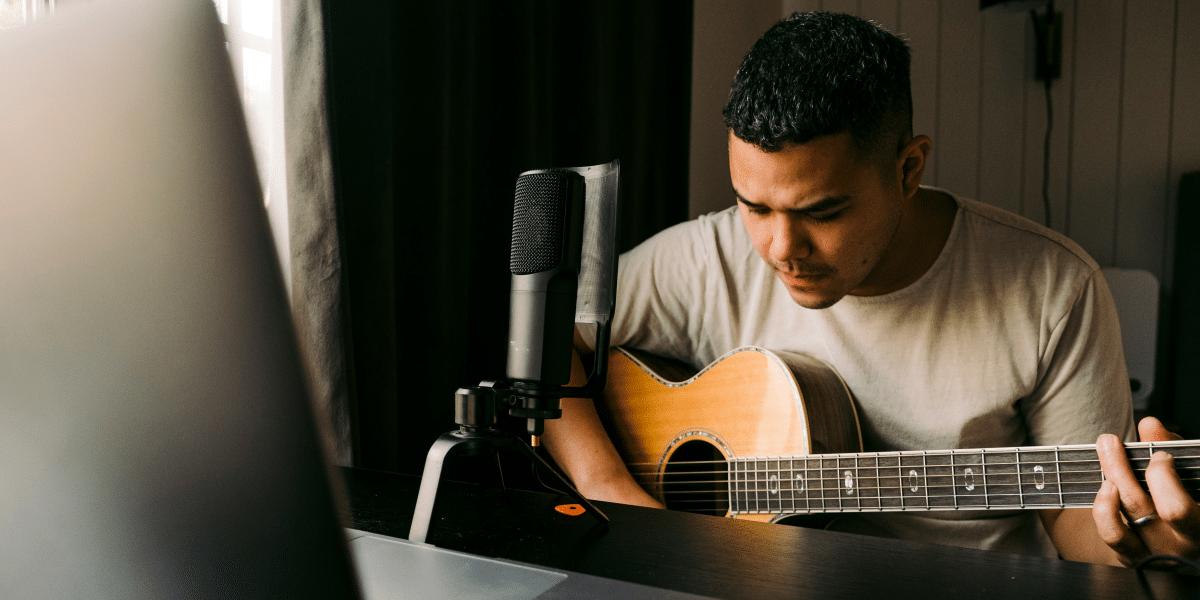Mastering the guitar requires more than raw talent; it takes dedication, structured practice, and consistency. Building a practice routine tailored to your goals ensures steady progress, helps you master techniques, and develops your musical skills. This guide offers strategies to create an effective guitar practice schedule to keep you motivated and on track.
A well-designed routine directs you to maximize your practice sessions by targeting different aspects of guitar playing.
Setting Clear and Achievable Goals
Before you start practicing, establish clear goals. Are you working to master a specific song, improve your technique, or explore a new genre? Well-defined goals provide a roadmap for your practice and help you measure progress over time. When you have tangible milestones, staying motivated becomes easier.
Practical Tip:
Break larger goals into smaller, manageable tasks. For example, if you want to learn a complex solo, divide it into sections, practice each slowly, and gradually build speed and accuracy.
Effective Time Management
Balancing different practice elements is crucial for well-rounded development. Allocate specific warm-ups, technique drills, repertoire practice, and creative exploration times. Decide how much time you can dedicate daily and organize your routine accordingly.
Suggested Time Allocation:
Warm-Up (10-15 minutes): Prepare your fingers and hands for playing.
Technique Development (20-30 minutes): Focus on specific exercises to build core skills.
Repertoire Practice (20-30 minutes): Work on learning and refining songs.
Creative Exploration (10-15 minutes): Experiment with improvisation and new ideas.
By structuring your time, you ensure every aspect of your playing receives attention.
Balancing Variety in Practice
Incorporating variety into your practice routine prevents monotony and promotes comprehensive skill development. Include exercises for finger dexterity, chord transitions, scales, rhythm patterns, and music theory. This diversity helps you stay engaged while building a broad skill set.
Example:
Assign different focuses to each practice session throughout the week. Dedicate one day to scales and technique, another to rhythm exercises, and a third to working on new songs. This approach keeps practice fresh and engaging.
The Importance of Consistency
Regular, focused practice is more effective than long, infrequent sessions. Aim to practice consistently, even for 20-30 minutes daily. Consistency reinforces muscle memory, builds endurance, and ensures steady improvement.
Tip for Beginners:
Short, consistent sessions are better than sporadic, long practices. Focus on maintaining concentration and minimizing distractions during practice time. As you progress, you can gradually increase your practice duration.
Creating Your Guitar Practice Routine
1. Warm-Up Exercises (10-15 Minutes)
Start each session with warm-up exercises to prepare your fingers, hands, and wrists. Activities like finger stretches, chromatic runs, and basic scales improve flexibility, loosen your muscles, and reduce the risk of injury. A good warm-up sets a strong foundation for more intensive practice.
2. Technique Development (20-30 Minutes)
During this part of your practice, focus on refining key guitar techniques. Skills like alternate picking, hammer-ons, pull-offs, slides, bends, and vibrato are essential for expressive playing. Use structured exercises to target each technique, gradually increasing complexity as you improve.
3. Repertoire Practice (20-30 Minutes)
Spend dedicated time learning and perfecting songs or pieces. Break challenging sections into smaller parts and practice them slowly, paying attention to timing, accuracy, dynamics, and expression. Gradually increase the tempo as you become more comfortable.
4. Ear Training and Music Theory (10-15 Minutes)
Enhancing your ear and understanding of music theory is vital for growth. Practice identifying intervals, chords, and melodies by ear. Study scales, chord progressions, and key signatures to deepen your theoretical knowledge. This makes it easier to learn new music and improvise.
5. Creative Exploration (10-15 Minutes)
Conclude your practice session with creative exploration and improvisation. Experiment with different scales, modes, and chord progressions. Allow yourself to play freely and expressively. This will help you develop your unique musical voice and foster creativity.
Tips for Optimizing Your Practice Routine
Set Realistic Expectations: Avoid overwhelming yourself with too many goals at once. Focus on achievable milestones to build confidence and maintain momentum.
Track Your Progress: Consider recording your practice sessions to monitor growth, identify areas for improvement, and celebrate your successes.
Break-Up Sessions: If your schedule is tight, break your practice into smaller, focused sessions throughout the day.
Adapt and Evolve: Be flexible with your routine as your skills evolve or new goals emerge.
Staying Motivated and Overcoming Challenges
Maintaining motivation is key to long-term success. Here are some strategies to keep you inspired:
Celebrate Small Wins: Acknowledge your progress, no matter how small. Reward yourself for reaching milestones to reinforce positive behavior.
Practice with Purpose: Remind yourself why you started playing guitar. Whether mastering a favorite song, impressing friends, or personal fulfillment, staying connected to your motivation makes practice enjoyable.
Seek Inspiration: Watch performances by your favorite guitarists, join music communities, or take lessons to find new sources of motivation and guidance.
Developing an effective guitar practice routine requires commitment, variety, and a clear focus on your goals. Dedicating time to warm-ups, technique development, repertoire building, and creative exploration will help you see steady progress. Embrace the journey, stay disciplined, and enjoy the process of becoming a skilled guitarist.
Published by: Nelly Chavez








